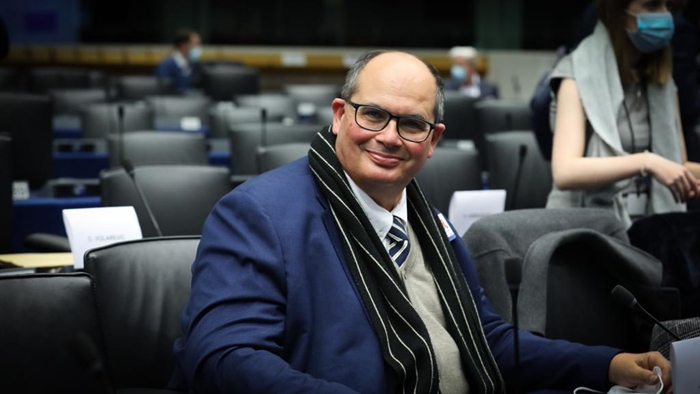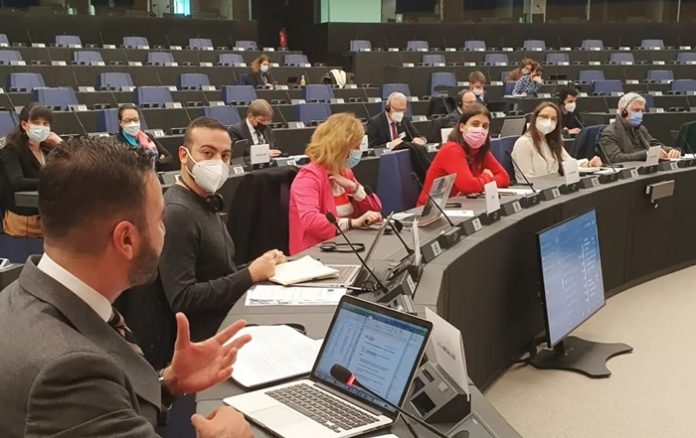The Third Plenary Session of the Conference on the Future of Europe was held on 21 and 22 January in Strasbourg, together with its working groups which were held on the margins of the Plenary.

Member of Parliament (MP) Jean Claude Micallef, who participated in the Working Group on Education, Culture, Youth and Sport, remarked that so far the European Union has not given enough importance to sport as a wellbeing and educational subject, quoting from the Dutch national citizens’ recommendations, where it appears that only 19% see sport as an area that needs to be tackled at European level.

In his brief intervention MP Micallef put forward the idea to the working group to push for a European Common Sports Policy. This policy should cover two main areas: lifestyle sports and elite sports. Lifestyle sports should cater for the general public and therefore there should be a common shared curriculum which will include a set of minimum requirements with the aim of achieving specific goals in better quality of life and mental health. MP Micallef pointed out that this policy would discourage the use of high sugar and fat foods. He added that such a policy should include the promotion of study visits, mentioning the example of Erasmus as best practice for sport education across Europe. Campaigns should be held on a European level to fight obesity and racism and even gender imbalance, therefore using sport as a leading area in which to push forward these campaigns. When it comes to elite sports, MP Micallef remarked that there should be more than a European week of sports. He stressed that there should be a common policy on anti-doping, match-fixing, racism and the protection of underage athletes. He concluded by stating that the EU should encourage a mentality which favours sport in order to encourage citizens to invest in their wellbeing. The proposal was given due consideration by the working group in the final recommendations.
MP Joseph Ellis participated in the Working Group on Migration. He was invited to give a presentation on the state of play of irregular and legal migration. MP Ellis tackled the subject from a wider demographic point of view. Quoting several statistics, he showed how in the next 30 years it is projected that the European population is expected to stagnate at approximately 500 million with a decrease of 49 million people of working age. He stated that competitors like China, Japan and Russia will also face demographic pressures. However, others will see an increase of potentially active workers and their respective population namely in the United States, India and Africa. This will likely lead to a demographic shock for Europe, yet nobody in Europe is talking about it, let alone preparing for it. MP Ellis mentioned the four pillars of the new European pact on migration: (1) stronger trust fostered by better and more effective procedures; (2) fair sharing of responsibility and solidarity; (3) co-operation with non-EU countries: tailor-made and mutually beneficial partnerships with third countries; Common EU systems for returns and a credible legal migration and integration policy; and (4) strengthening the legal routes of migration into Europe. However, quoting from a European Parliament briefing paper, he argued that the Commission’s proposals put a weaker emphasis on pathways to legal migration than on measures aimed at incentivising third countries to retain possible irregular migrants or to accept returns. MP Ellis concluded his remarks asking whether, in the light of Europe’s dire demographic trends, the European migration policy is the correct one or should greater emphasis be made of strengthening the paths of legal migration and integration and regularisation of third country nations in our countries.
The two MPs also participated in the plenary session which opened on Friday, 21 January, with a tribute to the late President of the European Parliament David Sassoli. The Plenary took stock of the 90 recommendations put forward by the European Citizens Panels on ‘European democracy/values, rights, rule of law, security’ and ‘Climate change, environment/health’, and of related recommendations from National Citizens’ Panels.
The next plenary will take place on 11 and 12 March.
Photos: HOR










